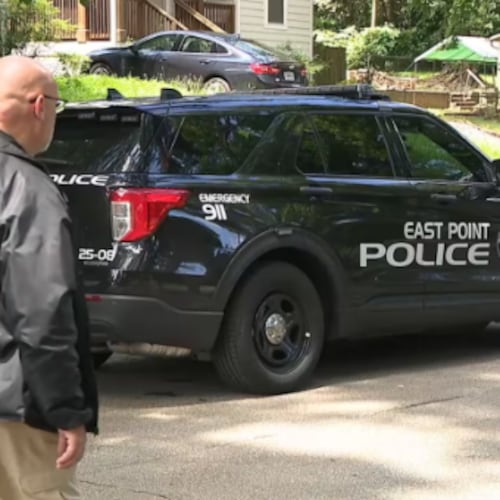Gay Atlantans and their friends and loved ones were shaking off the shock Sunday and coming together to support one another after the Orlando massacre left at least 50 people dead.
“This is a human issue, not just gay issue,” Tony Gowell says.
Gowell is a columnist for David magazine, an Atlanta print and digital publication aimed at the LGBT community. Gowell said that when he first got on Facebook Sunday morning, a friend congratulated him for making back it back from Orlando safely.
At first, Gowell thought his friend was talking about the shooting of “The Voice” singer, Christina Grimmie. Gowell had just returned from Orlando’s Gay Days last weekend, where he and friends observed the 30th anniversary of the Stonewall Riots. He said Pulse, scene of Sunday’s massacre, is a huge club that hosted numerous Gay Days events.
When Gowell realized a single man shot and killed at least 50 people at Pulse, he said he thought to himself, ‘This has to be the deadliest shooting since 9/11.”
In fact, the massacre is the deadliest in U.S. history.
Gerald Harris is editor of the Christian Index, the journal of the Georgia Baptist Convention, and a longtime preacher. Harris, of Duluth, said Christians must pray for the families of the victims.
It’s “a horrifying contemplation to think that that sort of thing can happen in America,” Harris said. “My heart goes out to the victims and their families. Whether they are gay or striaght is insignificant. They’re human beings and they’re loved by God.”
While he believes homosexuality is a sin, so are divorce or gossip, he said; that is not the point today.
“I think everything that happens, we ought to be able to learn from it,” Harris said. “We ought not to waste a tragedy. We need to work through these crises together.”
Atlanta City Council President Ceasar Mitchell was one of the first local politicians to issue a statement on Facebook regarding the Orlando attacks.
“Prayers and thoughts are with the families and loved ones affected by the vicious and horrific attack on the #LGBT community in #Orlando.”
Atlanta photographer, bartender and self-described queer activist Andi Beat Garcia remembers hearing about the 1997 attack on the Otherside Lounge.
“It was my first time in Atlanta and visiting that bar made me want to move here,” Garcia said. “I heard they bombed the bar and said to myself, ‘I just went there a few months ago.’”
Garcia still moved to Atlanta because of its gay-friendly atmosphere.
“Unfortunately tragedy like this forces us to wake up to the hate,” Garcia said. “I feel like we’re all going to get stronger and work to fix this.”
Some, including Garcia, blame the political climate for instigating hatred.
Atlanta author Collin Kelley said the ongoing effort by right-wing conservatives and religious groups to demonize the LGBT community also breeds hatred in this country.
“The rhetoric, bigoted language and hatred spewed by these people on the news, social media and from the pulpit are also to blame,” Kelley said.
Others just feel depression washing over them like a wave.
“I just feel a wake of sadness,” said Lewis Bello, who says he is a local drag performer.
Bello was in East Point Saturday night working with the East Point Possums and Lost-n-Found, a charity for homeless LGBT youth in Atlanta.
He said all his friends are safely accounted for and to his knowledge no one he knows died in the massacre, but he still feels connected to those who lost their lives.
“These people’s lives were destroyed by homophobia,” Lewis said. “They are my family whether or not I know them. Those are my people, my community and I would support any of them in a heartbeat.”
Rather than feel sad, 24-year-old Allison Carroll said she feels angry that terrorism has become rote.
“I was nine when 9/11 happened and, since then shooting after shooting after bombing after shooting, what I’ve learned is that this is a part of life,” Carroll said. “That attacks like these just happen. I have accepted that it will happen to me— the only question is when. I’m so angry and disappointed in the world to admit that I expect these events, that we all live in a dull constant state of terror.”
Carroll said she’s tired of being scared, but her fear doesn’t change anything about how she lives because it already has.
About the Author
Keep Reading
The Latest
Featured


